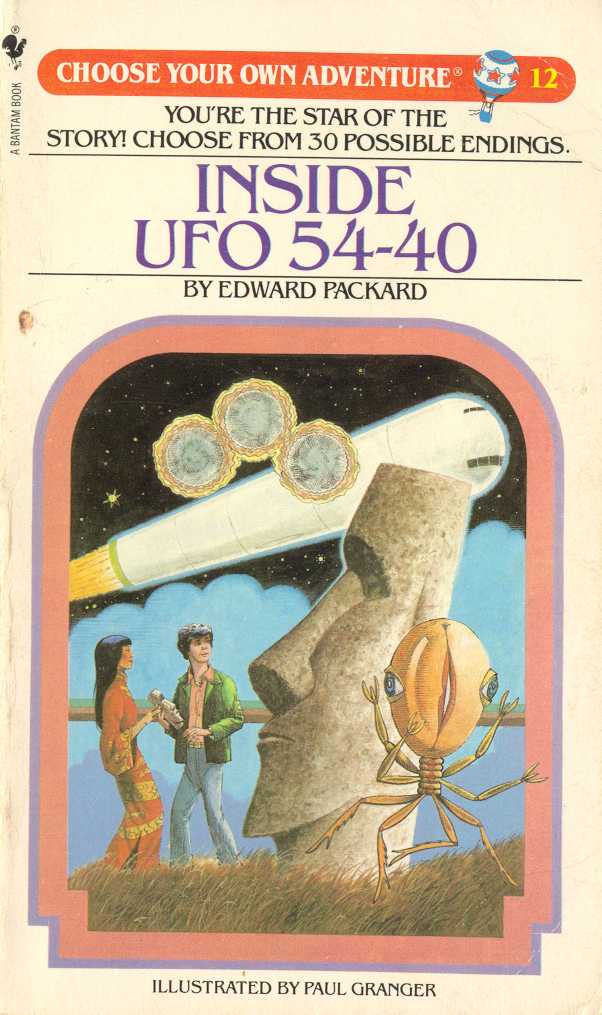 A student of mine recently introduced me to the musical stylings of Calvin Harris. Given my penchant for ridiculous retro-futurism, I was particularly taken with the song and video for "Acceptable in the 80s" This lead me to thinking of the myriad of interactive technologies that did not use personal computers or the nascent internet.
A student of mine recently introduced me to the musical stylings of Calvin Harris. Given my penchant for ridiculous retro-futurism, I was particularly taken with the song and video for "Acceptable in the 80s" This lead me to thinking of the myriad of interactive technologies that did not use personal computers or the nascent internet. Sitting in my office, on top of the filing cabinet is a semi-functional 2XL - a cleverly designed 8-track tape player. Using the ability to jump between tracks, a clever writer-producer-voice actor designed multiple interactive narratives and quiz segments. Really pushing a simple technology to do sophisticated (if campy) things.
Although I only had a passing acquaintance with it, the vast majority of my friends (then and now) were hard-core gamers. On the few occasions I'd joined a gamer-pod during a several-hour-long game of original D&D, I was struck first by the illustrations. But only later did I realize how complex the systems for this analog equivalent of an MMORPG really was. (in time it's become even more complex, but eclipsed by its online counterparts)
A few months ago, I was walking by the loading dock at the university where I work, when I noticed several beautiful wooden card catalog bureaus being thrown out. I managed to salvage the four nicest of them. I can't help but think that there's a bit of hubris in ditching the analog catalog simply because there is a more effective digital one. In this respect, I admire my RPG otaku friends who keep playing paper-based games.
Then somewhere in the back of my brain I remembered another example of an analog interactive technology, the "Choose Your Own Adventure" series. These were the young adult fiction that I remembered from the 80s. Most of them were cliché even to a budding 12 year old. But buried within these mass-market paperbacks was occasional brilliance.
In fact, I think the one above taught me an important lesson at least about novels, if not about life in general. ...and how boredom might have been my first introduction to "postmodernism"
The contrivance to all of these books was simple: a 2nd-person narrative that prompted the reader to turn to a page to continue along the storyline that was based upon your choice. In theory, a great novelty for YA fiction. A reader with a short attention span is engaged in a physical task, and rewarded for decision making. Each reading of the book could be different, also longer or shorter depending on the intent of the reader.
But that's not the post-modern experience I had with these books.
On some long trip or another, probably either on a flight back from visiting my grandparents or a drive back from visiting my cousins -- both interminable by the standards of a 6th or 7th grader. I decided to simply read the books cover-to-cover. The result was far more interesting that the simple storylines the authors had intended. It was an experience of multiple overlapping realities. In the book pictured above this reached a brilliant meta-conclusion.
The story is of an adolescent ("you") abducted by aliens for inclusion in their zoo. During various predictable plot twists, the characters begin searching for a Utopia with its expected peace and happiness. However, following the instructions of the book, a reader would never come across that narrative thread.
These are "pages 101 through 104" - and I'd stumbled across them when, being bored, I'd read the book straight through violating its premise. The intervening years had clouded that memory (too much partying in the late '90s). But it's an important lesson to recall. Breaking across the multiple narratives may be the best way to find those hidden utopias - that are un-seeable from the expected narratives that society gives to us.
What are some other means of jumping across narratives? Back the the aforementioned late 90s, I'd heard of a film-studies student who had used the school's video editing suites to re-cut "Pulp Fiction" into its chronological order. What utopias did he find? (or was he himself a film-school urban legend? ...a narrative utopia?)
At least we can continue to challenge and hack the stories we tell ourselves. Exegesis may be only the beginning....but I'm beginning to see why esoteric frequently means hidden.
Like pages 101 through 104.
No comments:
Post a Comment